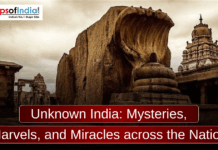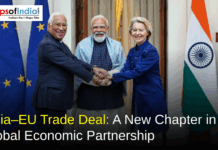An old bone of contention called ‘Kashmir’:
The military recognized imaginary line segregating the erstwhile State of Jammu and Kashmir into the two parts is not, in any way, an internationally recognized boundary, separating the two countries, but is identified by the military of both the countries as the veritable boundary line designated ‘Line of Control’ (LoC). The India occupied portion of the erstwhile state of Jammu and Kashmir is known as Jammu and Kashmir while the Pak occupied sectors are known as Gilgit-Baltistan and Azad Jammu and Kashmir. On November 26th, 2003 a formal cease fire accession was achieved between the two potentially dangerous and nuclear weapons armed conflicting countries, apparently marking the end of fourteen years of feud and gun battles. But the future was not destined to be peaceful as Pakistan continues to violate the LoC mandates till date and Jammu and Kashmir remains a bone of contention between the two neighboring countries.
The Pakistan perspective of the recent peace talk attempts:
Pakistani Prime Minister Nawaz Sharif during his US visit in late October this year, for a summit meeting with US President Obama, had declared that improving bilateral relation with India happens to be one of his ‘favorite subject’, during a prolonged address to an assemblage in the United States Institute of Peace. He had further alluded to his historic meeting with the former Chief Minister of India Atal Vihari Vajpayee in Lahore in 1999, where he claimed that both sides (i.e. India and Pakistan) were very close to resolving the outstanding issues between the two neighboring countries. However, such noble efforts were thwarted in the nascent stage when the Nawaz Sharif Government had been overthrown in a coup – de – grace by General Pervez Musharraf. The drastic actions of Musharraf and his military regime had upset the whole peace procedure that Sharif and Vajpayee supposedly formulated.
Sharif described the recent meetings with the present Prime Minister of India, Manmohan Singh to be hopeful one. However, Sharif expressed his frustrations regarding the fact that whenever fruitful peace talks are underway between the two countries, something untoward always happens that totally upsets the peace endeavors. Ensuing his recent meet with Mr. Singh, the violation of the LoC mandates had severe repercussions on the peace formulations. Admitting that the Kashmir issue is a tough nut to crack, Sharif exclaimed, “Kashmir of course is a very difficult issue and very difficult to resolve but I think by sitting and talking we will be able to find some way to resolve that too because that is a flashpoint in not only the region but also in the whole world. And then any solution which can come about, will not be able to come about, unless and until the people of all the three sides put their endorsement to this – the people of India, the people of Pakistan and the people of Kashmir.”
The Ministry of Foreign Affairs confirmed that, the recent dialogues between the Prime Ministers of India and Pakistan regarding the Kashmir issue could play a pivotal role in resolving the long standing disputes between the two countries. In response to Manmohan Singh’s challenge that Pakistan can never emerge victorious in a war with India, at least not in his lifetime, Pakistani Foreign Office Spokesperson, Aizaz Ahmad Chaudhry, expressed his urgency of a discourse to dissolve the foreboding that existed between the two countries. He further affirmed that, Pakistan is devoted to holding explicit peace talks as it happens to be the best means of diffusing the volatility and mistrust that exist between the two countries and improve the relationship both ways.
As a response to Sharif’s statement that he wanted the emancipation of India held Kashmir during his lifetime, Chaudhry had pointed out that Sharif had been grossly misquoted and the reality as per Chaudhry’s statement, “Pakistan had always extended moral and diplomatic support to the Kashmiri people, and we would like to see a peaceful resolution of the issue based on U.N. Security Council’s resolutions”. He confirmed the aspirations of the Pakistani Government to maintain peaceful bilateral relations with its neighboring country India, and such a generous purpose can only be brought to a successful conclusion through a resolving of the Kashmir issue. He further added that, the Pakistani Government had always encouraged India to hold explicit and factual peace conversations to settle this chronic feud while including representations from the leaders of Kashmir in such peace dialogues. He reiterated the imperative need for dialogues to settle all long standing disputes between the two countries.
While answering another question on the issue of India, constructing a wall along the LoC, Chaudhry confirmed that, he is aware of such reports. He added that while an apperception has been mutually reached by both the sides that there should be no permanent construction within a distance of 500 meters on either side of the LoC, such considerations should be adhered to. As for the issue of the Indian Troops pulling out of the Siachen Glacier, Chaudhry implied that he is hopeful that both sides should enhance an explicit dialogue as a part of the combined peace talks to straighten the Siachen issue. Defending the statement of Sartaj Aziz, Advisor to the Prime Minister of Pakistan on National Security and Foreign Affairs, that ‘Indian troops must pull out of the Siachen Glacier’, Cahudhury commented that such declarations were made keeping in mind the environmental issues pertaining to the Siachen Glacier.
Imran Khan’s comments on the India – Pakistan peace procedure:
The internationally acclaimed Pakistani cricketer and former captain of the Pakistan cricket team, Imran Khan had taken an interest in politics, and has emanated as a significant political personality after the recent elections in Islamabad. Khan is also of the opinion that, a conclusive agreement of the Kashmir issue is imperative to promote the bilateral relations between the two nations. He also maintains the view that, both countries need strong and charismatic leaders to enhance the peace process. With Prime Minister Manmohan Singh busy with the impending elections and unavailable for peace talks, Khan is of the opinion that the peace procedures will receive a shot in the arm only after the new government comes into power in 2014, as evident from his statement, “The honeymoon period is the best time for any government to take hard decisions.”
When asked about Pakistan’s opinion about Narendra Modi as the Prime Ministerial candidate of the BJP, Khan indicated Pakistan’s apprehensions about Modi, owing to the cloud of communal violences in Gujarat encircling Modi. However, Khan asserted that Pakistan is ready to hold peace talks with Modi if he emerges as the future Prime Minister of India. He further asserted that when it comes to peace procedures through composite dialogues, personalities do not matter, what is really important is the honesty of intentions on both sides to establish peace. Avoiding a public denouncement of the chief perpetrator of the 26/11 attack, Hafiz Saeed presumably because Saeed happens to be a political colleague of Khan, he further added, “Pakistan is at a crossroads and it is imperative that we have a dialogue with the Taliban and bring some peace in the tribal areas, else India will have more than one militant group to worry about”.
Conclusion:
Going back to the issues of Jammu and Kashmir, an opinion poll conducted during the period of 2007 – 2010 on both sides of the LoC revealed that, Muslims in the India occupied sectors of Kashmir interested in being a part of Pakistan amounted to less than 10%. Similarly, Muslims in the Pakistan occupied sectors of Kashmir are disinterested in being a part of India. Times have changed since the partition of India in 1947. Hence, the entire situation needs consideration in this new perspective and if a resolution of the Kashmir issue can be achieved by the two nations, however impossible it may sound, the terrorist activities presently fuelled by Pakistan will be heavily curtailed. Pakistan has already degraded itself in the global view by harboring criminals and terrorists wanted worldwide. The fact that Osama Bin Laden, topping the world’s most wanted list finally eliminated in Pakistan by the US Special Forces, still sticks out like a sore thumb. It is, therefore, in the best interest of Pakistan to resolve the Kashmir issue through consolidated peace dialogues with India which just might restore some respect for the said nation in the international political scenario.
Read More:
Farooq Abdullah Doubts India’s Legitimacy Over Kashmir, but Why?
Uri Terror Attack: It’s a Call to Action
Who was Burhan Wani
Government’s Outreach to Youth From Kashmir
Militant Groups in India
Kishtwar: Another Burning Chapter in Kashmir




